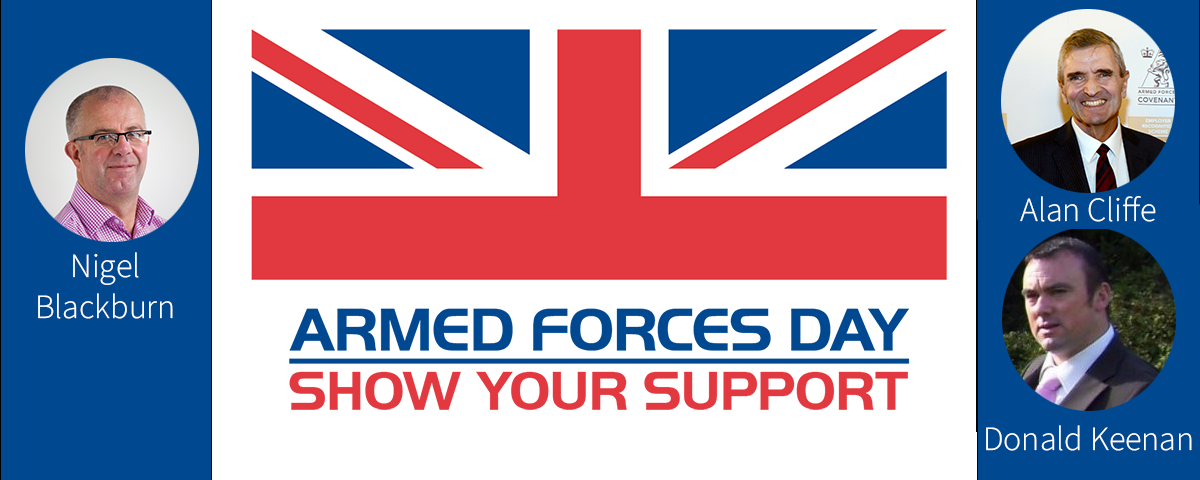
This Armed Forces Week we are shining a light on some of the Veterans who work at Tetra Tech and sharing their journeys from the Armed Forces to a civilian career.
Today it’s the turn of Donald Keenan, an Associate in our Engineering business, Principal Project Manager, Nigel Blackburn and Alan Cliffe a Director in our Project & Programme Management business.
Donald joined the Army as an apprentice with the Royal Engineers in 1994. He started out as a combat engineer then trained as an electrician before returning to higher education to become an Electrical Engineer (Clk Wks E) and rising through the ranks.
When Donald left the Army he continued as an electrical engineer, progressing up the career ladder until he was offered employment as the electrical superintendent for a mining development called Project Simandou in Rio Tinto, West Africa. He progressed to construction superintendent looking after the main workforce at the mine and having over 800 staff to supervise. As part of the Project Simandou operations department, he was the nominated PM for several projects from airfield extensions to runway lighting and a new build hospital. When this role ended, he joined WYG (now Tetra Tech) as a principal design consultant.
Donald says “I was straight in at the deep end when I started this role. I was the electrical lead on a very complex and extremely technical project which was great as I love a challenge. I am now an Associate level and the project manager for a few projects as well as the lead building services design engineer on several others and my days are massively varied”.
When asked what he thinks employers gain from bringing veterans into their business Donald said, “Ex-forces personnel are used to working with minimum supervision, under pressure to meet deadlines and most are already trained in some level of project management. Most service leavers have lots of additional qualifications too. My first CV when I left had a A4 page listing all my qualifications gained in the military.”
Nigel was a member of the Adjutant’s General Corps finishing as a Warrant Office Class 1 following 22 years’ service. Nigel’s initial transition following discharge wasn’t straight into consultancy. He decided to start his own wall and floor tiling company before looking to move into full time employment two years later.
He was working for a contractor in Catterick Garrison when he met his current colleagues from Tetra Tech, illustrating just how important it is to build your personal networks when you leave the forces. “At Catterick, I met Andrew Fotherby who is now our Defence Sector Managing Director and when my position with the contractors came to an end, I joined him at WYG in Leeds (now Tetra Tech) with a view of working on the Army Basing Programme. Andrew recognised just how much I knew about the Army, about Facilities Management and about how the Defence Infrastructure Organisation (DIO) works”
Nigel is now a Principal Project Manager providing support to Ministry of Defence and DIO projects. He says, “I think that coming from a varied military career ex-forces are often able talk the same language as our military clients which is very helpful”.
Nigel thinks there are lots of reasons why it is good for businesses to employ ex-service people including the type of experience they have, He says “the ex-service community come with a vast amount of experience, working in varied and sometimes hostile environments. They are often unfazed by a challenge – indeed some relish the opportunity”.
Alan was a Royal Engineer for nearly 40 years having joined as an apprentice electrician at age 16. For the vast majority of his career he was employed in technical, construction or facilities management roles, many of which were in support of operations working with and supervising civilian contractors.
On leaving service Alan was head hunted for his experience working with the DIO. As a result of his directly analogous transferable skills he quickly progressed to managing bids and became a Project Director. Talking about what he had to learn when he took a civilian role Alan said, “I did need support to learn about the in-house commercial strategies, but as someone who had managed DIO contracts I picked it up quickly”.
When outlining the most notable benefits for employers taking on veterans Alan agrees with Nigel’s view about their understanding of defence clients, “the ability to understand and be able to communicate effectively with the DIO is a key asset here at Tetra Tech but where this isn’t applicable our leadership, management, presentation and ‘Can Do’ skills come a close second”.
Since joining then business in 2014 Alan has helped recruit and mentor a significant proportion of our Veterans. He plays a pivotal part in implementing the employment recognition scheme and contributed to the company achieving Gold Covenant status in 2016.